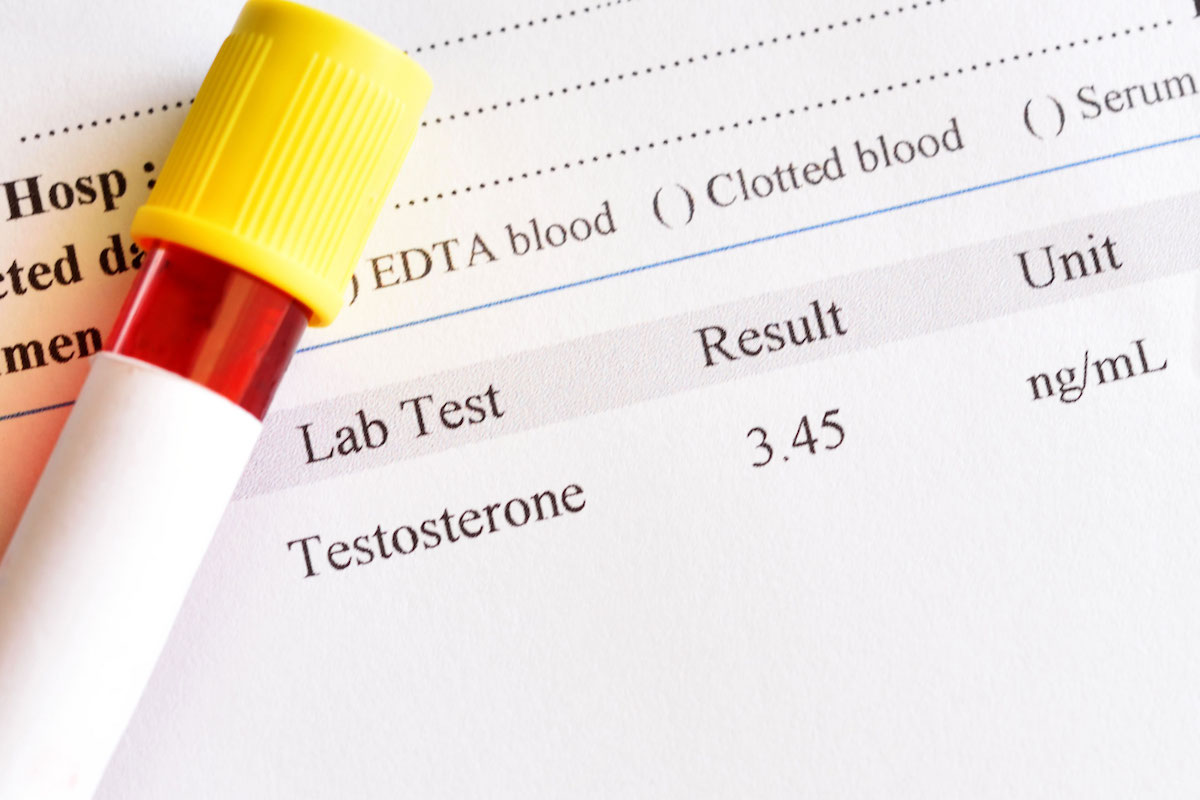Testosterone is the hormone that puts the man in manly. Produced by the testicles, it’s responsible for the transition from boy to man: facial hair, deep voice, sexual development, muscular build and just about every other adult male characteristic.
As if every guy didn’t know that. But what, exactly, is low testosterone? Medically speaking, it’s when testosterone levels drop below 250 nanograms per deciliter. As measured by a blood test called serum testosterone, the normal range is 250 to 1100 nanograms per deciliter.
As men age, decreasing levels of testosterone is unavoidable. Stress, alcoholism, obesity, cancer treatment (chemotherapy or radiation) are among the causes of low testosterone in younger males. A male sex hormone deficiency, hypogonadism, can also contribute to low-T.

“There are 2 types of hypogonadism,” says Dr. Helen Anaedo, a Hartford HealthCare Tallwood Men’s Health board-certified endocrinologist. ” The congenital type, which is less common, and the secondary type, which typically develops later in life. Even though treatments are similar, it is important to differentiate between the two types to help with genetic counseling and also be able to recognize treatable causes of low-testosterone.”
Here are five signs of low testosterone, or low-T:
- Erectile dysfunction: Testosterone, the all-purpose fuel for the male sex machine, stimulates sex drive and also helps produce nitric oxide — a molecule that initiates several reactions that eventually produce an erection. Low testosterone can cause difficulty in achieving or maintaining an erection. Important: Low testosterone is only one possible cause of erectile dysfunction. Talk to your doctor if you’re experiencing any difficulties.
- Increased body fat: Notably, some men developed enlarged breast tissue (gynecomastia), perhaps because of a disruption of the testosterone-estrogen balance in the body.
- Mood changes: Here’s the mental side of testosterone. Men with low-T can also experience depression and irritability.
- Hair loss: Balding is part of aging, typically inherited. Men with low testosterone, however, can also lose body and facial hair.
- Difficulty sleeping: Falling asleep or staying asleep. Many men with low testosterone also have sleep apnea.
With an aging population, testosterone has become one of the most widely prescribed medications in the United States. The testosterone replacement therapy sector of the pharmaceutical industry, which accounted for $18 million in the 1980s, reached $1.6 billion in 2011, according to the National Institutes of Health.
“Therapy duration depends on the cause, adverse reaction and tolerance,” says Dr. Anaedo. “In general, it’s mostly long-term use. It is usually very effective if the right diagnosis and other compounding factors are eliminated.”
Increasing testosterone, however, doesn’t always require a prescription. Here are five ways to boost levels naturally:
- A healthy lifestyle: Combine exercise, particularly lifting weights and high-intensity interval training, with a nutritional diet. Get a good mix of protein, fat and carbohydrates. Ginger, leafy green vegetables, extra-virgin olive oil, fatty fish and fish and oysters each have properties that can help elevate testosterone levels.
- Avoid stress and its accompanying high levels of cortisol, a hormone that can reduce testosterone.
- Vitamin D: Get it as a vitamin supplement or regular exposure to the sun.
- Get plenty of quality sleep. In one study, sleeping five hours a night was linked to a 15 percent drop in testosterone levels.
- Try some testosterone-boosting herbs. Ashwagandha (Sanskrit translation: “smell of the horse) has been a favorite more than 3,000 years as a stress-reliever and energy-booster. In one study it not only increased testosterone levels significantly, but also increased sperm count and movement (motility).
“We recommend lifestyle changes very often,” says Dr. Anaedo, “as medications are not very effective if compounded by other risk factors like obesity or obstructive sleep apnea except in cases when changes are difficult, as in psychiatry medication use.”
Want to learn more about low testosterone and how it’s treated? Click here to register for a free educational seminar with Dr. Helen Anaedo, a fellowship-trained Hartford HealthCare endocrinologist, April 16 at 6:30 p.m. at the Tallwood Men’s Health Center in Farmington.
For information on Tallwood Men’s Health, click here.


